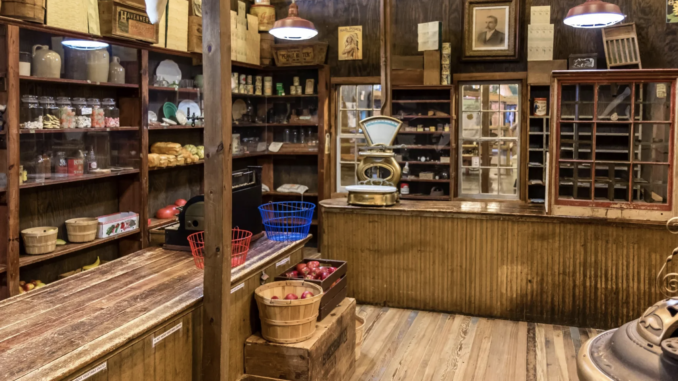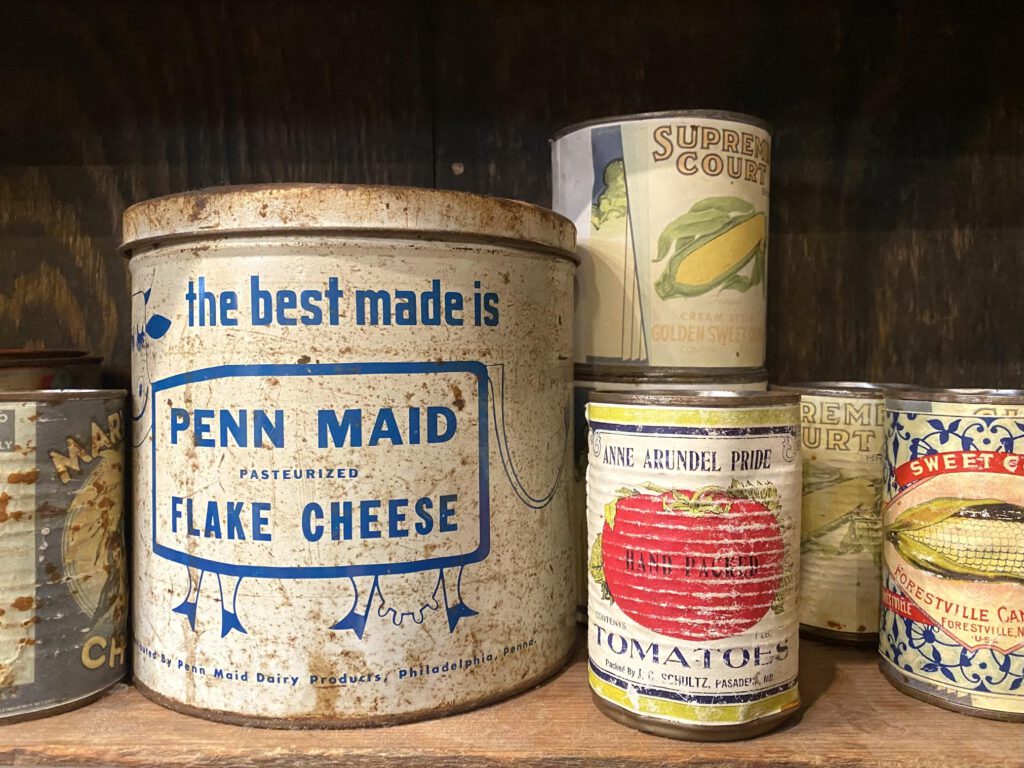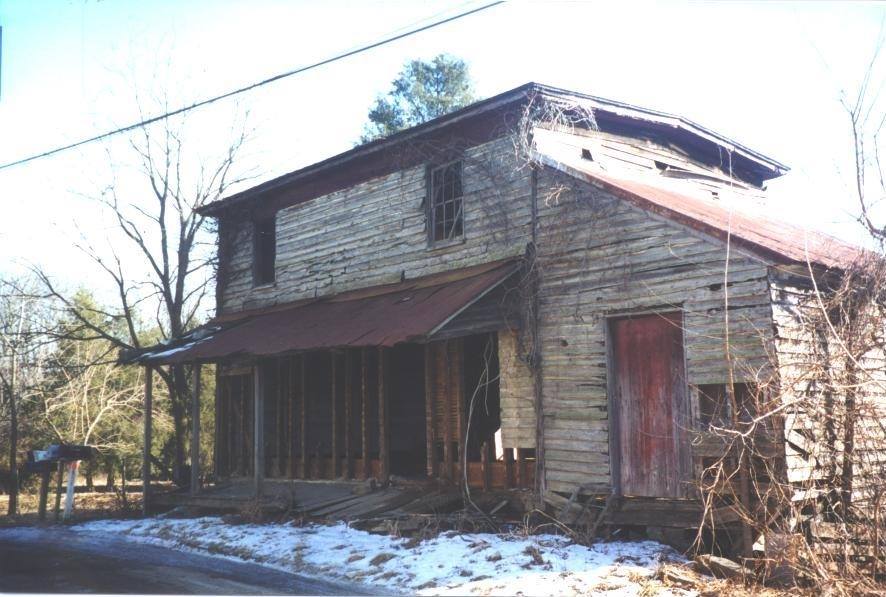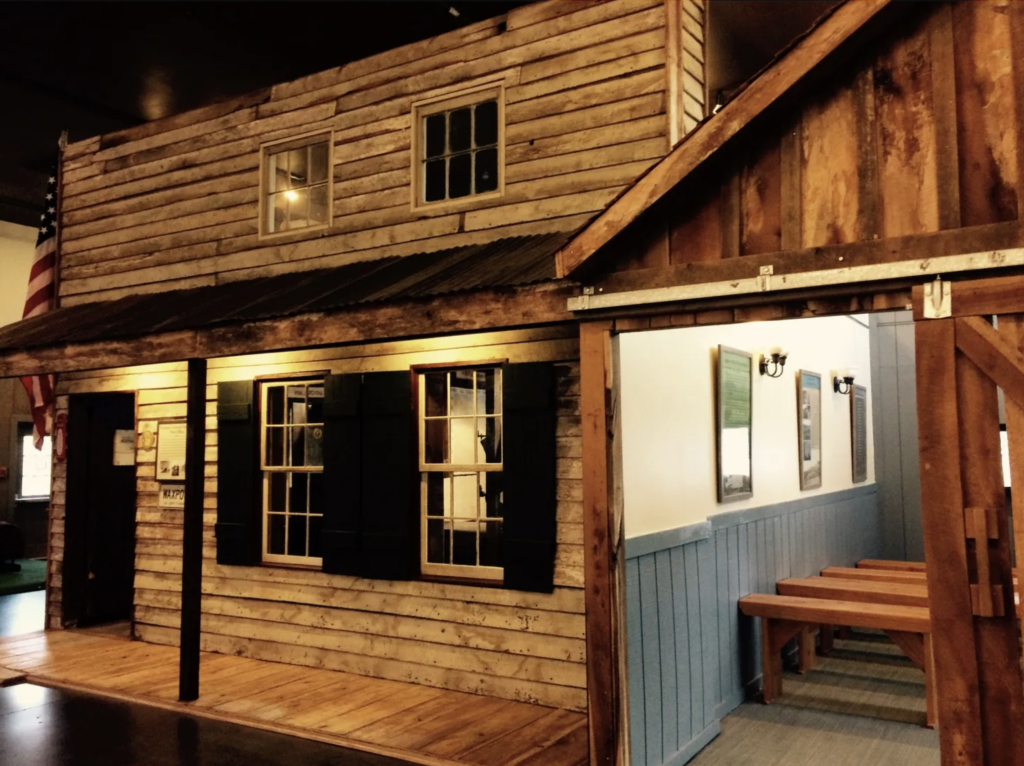
HEART OF THE COMMUNITY
By Lori Kimball
Not all that long ago, every village had a general store that was the heart of its community. The Waxpool General Store was that heartbeat for Waxpool, now part of the broader area known as Ashburn.
The store was at Belmont Ridge Road and Waxpool Road and also housed the community’s post office and voting precinct. Samuel E. Munday purchased the store in the late 1800s, and his family operated it until it closed in 1943.
In 1906, he turned it over to his son — S.E. “Ed” Munday Jr. — who ran the store with his wife, Lillie Carter. As a store owner in a rural area, Ed was also the postmaster, pharmacist, money lender, shopkeeper and telephone operator. He dispensed dozens of medicines like Ramon’s Relief, which was guaranteed to stop all internal and external pains, and Lightning Hot Drops, taken to cure colic in children.
As Ed’s health deteriorated, his daughter, Tessie Penn Munday Tillet, took over. Another daughter, Dora, was a clerk in the post office. A son was a barber in Leesburg, and he gave haircuts to customers at the store.
Tessie operated the shop Mondays through Saturdays. Locals gathered to gossip, catch up on news, enjoy a cold drink or make a phone call from the only telephone in town.
STORE OPERATIONS
The Mundays bought merchandise from over 165 companies all over the country. Goods were delivered to the store by horse and wagon, after coming in on the Old Dominion Railroad. The general store carried nearly everything: fresh and canned goods, medicine, candy, chewing tobacco, children’s toys, fabric and sewing notions, guns and ammunition and farm tools.
Most purchases were made on credit, and customers, all well-known by the shopkeeper, settled their bills weekly or monthly. The few people who paid in cash were strangers passing through the area.
WAXPOOL POST OFFICE
It was not uncommon for the local post office to be located in the community’s general store. It benefited the store owner because people who came to pick up their mail might buy something at the shop.
Besides running the shop, Ed Munday was appointed postmaster of Waxpool in 1909. He served in that capacity until 1940 when daughter Tessie was appointed. She operated the post office from the store until 1942 when she closed the store and moved the post office to her house across the street. Tessie’s son, Bill Tillet, who still lives in Ashburn, remembers the mailman bringing the mail into their house and his mother sorting it into piles on their dining room table. People would stop by, mostly in the evening after farm work was done, to pick up their mail.
Tessie closed the store at the start of World War II because she did not want to deal with ration coupons. The post office in her house closed when services moved to one of the larger regional post offices.
SAVING THE STORE
By the late 1990s, the former Waxpool Store was in bad shape after standing empty for decades. Plans for the Loudoun Heritage Farm Museum in Sterling were underway, and the museum’s board decided to partly re-create the store inside the museum as a hands-on exhibit. The Tillet family donated the remains of the store to the Museum. The storefront was re-created, and interior furnishings, such as counters, shelves and storage bins were refurbished.
Thousands of records from the operation are now in the Farm Museum’s archives, including ledgers, receipts, order forms, promotional materials, postal documents and poll books of registered voters. A piece of Loudoun’s past — now preserved for future generations.
Lori Kimball is the former executive director of the Loudoun Heritage Farm Museum, a museum dedicated to preserving Loudoun County’s agricultural history. The museum is at Claude Moore Park in Sterling.



